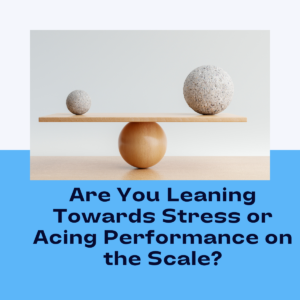9 Surprising Signs Your Body Shows You’re Closed-Minded

How Open-Mindedness Fuels Success and Longevity
9 Surprising Signs Your Body Shows You’re Closed-Minded”
The journey toward personal and professional success is often hindered by a subtle yet significant barrier: closed-mindedness. As an optimization specialist for over two decades, I understand how this mindset is an obstacle and a massive hurdle for growth and contributes to stress and an accelerated sense of aging in the body. The way it shows up, which most people manage and never address until it is too late, is:
- 1. Physical Tension: in the neck, shoulders, and back. This physical tightness can cause discomfort and pain. at a low level for a while where it becomes normal to have a limited range of motion, so you begin to normalize being average and or blame it on your age.
- “I AM GETTING OLD“
- 2.Fatigue: Mental rigidity and stress can lead to chronic fatigue, making individuals feel drained and lethargic and forcing them to lean on more supplements and stimulants like coffee and alcohol to relax.
- 3. Emotional Distress: Resistance to change and negativity can trigger feelings of frustration, anger, or hopelessness, contributing to a cycle of emotional turmoil.
Addressing these physical and emotional manifestations through holistic approaches can help alleviate these symptoms, leading to a more open-minded and healthier state of being.
Reflect on these behaviors to see if they apply to you:
- Resistance to New Ideas: Do you find yourself dismissing fresh approaches to managing stress or wellness, clinging to old habits even if they’re ineffective?
- Defensiveness in Feedback: How do you react when receiving constructive criticism or advice? Do you get defensive, or do you consider the potential benefits?
- Negativity Towards Change: Think about how you view changes in your life. Are they seen as threats or as opportunities for growth and improvement?
These behaviors can create a cycle of stress and hinder growth, contributing to physical and mental strain. Let’s optimize your performance holistically, promoting open-mindedness and healthier, more adaptive responses to life’s challenges.
This article delves into the psychology behind closed-mindedness.
It offers insights into how embracing open-mindedness can lead to better time management, energy optimization, and financial success, ultimately contributing to a younger, healthier you.
Unseen Barriers of the Mind:
Recognizing Hidden Closed-Mindedness
Closed-minded individuals often exhibit behaviors that, while seemingly harmless, can significantly impact their mental and emotional well-being. These include interrupting others, needing always to be right, blaming others, poor active listening, constant negativity, lack of empathy, poor conflict management, belittling others, and struggling with self-awareness. These behaviors reflect a closed mindset and contribute to increased stress and a diminished ability to enjoy life fully.
The Impact on Time, Energy, and Money:
Closed-minded behaviors can drain time and energy, leading to inefficiency in both personal and professional domains. For example, the need to be right can result in prolonged, unproductive arguments. At the same time, poor conflict management can lead to unresolved issues and ongoing Tension. This wastes time and saps energy better spent on constructive activities. Moreover, a negative attitude and lack of empathy can alienate colleagues and clients, leading to missed opportunities and financial losses.
The Toll on Mental and Physical Health:
- The impact of closed-mindedness on mental and physical health can manifest in more immediate and relatable ways that you are considering normal and okay. BUT IT IS NOT
- Persistent Anxiety: They may experience ongoing anxiety, not realizing it’s linked to a rigid mindset that resists new perspectives or change.
- Sleep Disturbances: Closed-mindedness can contribute to sleep issues, as the mind struggles to relax due to inflexible thinking patterns.
- Digestive Problems: Stress from closed-minded behavior can lead to digestive issues, often overlooked as unrelated to mental state. “think of it as you are having trouble stomaching or digesting an issue.”
- Frequent Headaches: Regular headaches or migraines can be a physical manifestation of the mental strain caused by a closed mindset. Don’t think Migraine or I need assistance type of head ache. Think of those times when things are loud, and you find yourself rubbing your head or becoming short in temper or emotions.
- Mood Fluctuations: They might encounter sudden shifts in mood stemming from an inability to adapt to new situations or ideas.

9 Signs You're Talking to a Closed-Minded Person
A closed mind proves a point, while an open mind improves a situation. Here are nine behaviors that signal closed-mindedness in my time watching clients explain situations that affect their lives.
- 1. Interrupting Others: Frequent interruptions show disrespect and a lack of empathy, obstructing personal and professional development. Active listening is vital for positive relationships.
- 2. Need to Always Be Right: Insisting on being right isolates individuals and blocks valuable perspectives, hampering progress.
- 3. Quick to Blame Others: Blaming others impedes self-reflection and growth. Recognizing personal mistakes is crucial for advancement.
- 4. Struggling with Active Listening: Poor listening leads to misunderstandings and missed collaborative opportunities.
- 5.Constant Negativity: Persistent negativity limits potential, obscuring opportunities for success and happiness.
- 6. Lack of Empathy: lack of empathy can manifest as challenges in connecting deeply with others, both in personal and professional settings. This difficulty in understanding and resonating with others’ feelings can lead to strained relationships and a sense of isolation. It might result in misunderstandings or conflict in team environments, as empathy is key to effective collaboration and building trust. Enhancing empathy can greatly improve interpersonal connections and teamwork, fostering a more harmonious and productive environment.
- 7. Poor Conflict Management: The inability to effectively manage conflicts can significantly negatively impact relationships essential for personal and professional growth. This might show up as repeated arguments, unresolved issues, or Tension and dissatisfaction in relationships. Improving conflict resolution skills is key to fostering harmonious interactions and creating a supportive environment that nurtures growth and development.
- 8. Belittling Others: Belittling, often stemming from insecurity, damages relationships and impacts mental health.
- 9. Struggling with Self-Awareness: Lack of self-awareness hinders improvement and reaching full potential.
The more of these you or the person you are evaluating has, the more closed-minded they are. which changes how you will need to have a mutual energy exchange and a positive experience.
Body Language Indicators of Closed-Mindedness and the Role of Muscle Activation in Promoting Openness and Connection
Body language can be a powerful indicator of closed-mindedness.
- Crossed Arms: Often a sign of defensiveness or resistance. This posture may indicate an unwillingness to be receptive to new ideas or perspectives. Pay close attention to the hand. This is true only when the hand is clenched in a tight fist.
- Lack of Eye Contact: Avoiding eye contact can suggest disinterest or discomfort in the conversation, a common trait in closed-minded individuals.
- Facial Expressions: Frowns or smirks may convey disagreement or judgment, revealing a closed mindset. Even a blank, expressionless face can be a sign the person is no longer listening.
- Body Orientation: Turning away from the speaker can demonstrate disengagement or a closed-off attitude.
- Foot Tapping: Rapid foot tapping might indicate impatience or a desire to leave the situation, suggesting a reluctance to engage in the present discussion or activity fully.
- Sighing Frequently: Repeated sighing can be a sign of exasperation or disapproval, often seen in individuals who are not open to what is being discussed or presented.
- Rigid Posture: A stiff, unyielding body stance can reflect an internal state of inflexibility or resistance to what is happening around them.

The Freedom Mastery Experience is designed to clear the mindset by addressing the root causes of personal issues.
It involves activating specific muscles linked to the brain’s fight or flight response and those associated with calmness and healing. This approach aims to foster love and connection, focusing on the frontal lobe. It’s a holistic method that unites physical and mental well-being, promoting open, empathetic interactions with others.
Addressing these behaviors through the mind-body connection can enhance well-being, better stress management, and a more prosperous, fulfilling life. Remember, “A closed mind tries to prove a point in a situation, and an open mind improves a situation.”
Strategies for Cultivating Open-Mindedness:
To combat closed-mindedness, develop self-awareness and actively practice empathy and active listening. This involves being present in conversations, valuing others’ opinions, and being open to new ideas and perspectives. Additionally, managing conflicts effectively and embracing a positive outlook can significantly reduce stress and promote a sense of well-being.
Becoming open-minded is not solely a mental challenge; it’s equally a physical one. Rather than trying to think your way out of a physical problem, aligning with your body’s functioning allows you to slow down and address the signs of closed-mindedness. As you become more attuned to your body, you’ll find opening up to new perspectives and ideas easier. This holistic approach balances mental flexibility and physical well-being, paving the way for a more open, receptive, and enriched life experience.
Don’t Stop Here
More To Explore

Unlock Your True Potential: Why Stress Management is the Missing Link in Your Success
You’re ambitious, driven, and always looking for the next milestone. Whether it’s a career goal, a physical feat, or any other achievement, you rest when

5 Key Strategies for a Harmonious Thanksgiving
Empowering Family Dynamics: 5 Key Strategies for a Harmonious Thanksgiving Thanksgiving, a time of gratitude and family reunions, often brings a mix of emotions

The Smarter Way to Success with Strong Glutes
Today, I’m speaking directly to you, the dedicated triathlete or passionate fitness enthusiast. You’ve probably embraced the relentless hard work, believing that strengthening your glutes

